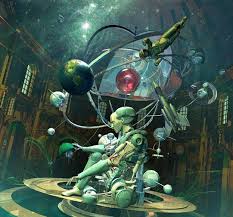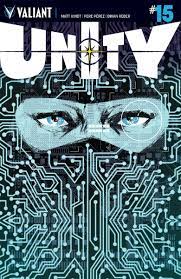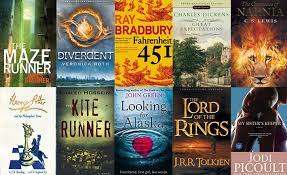The Fascinating World of Science Fiction
Science fiction, often abbreviated as sci-fi, is a genre that captivates audiences with its imaginative and speculative exploration of the future and the unknown. From space exploration to time travel, artificial intelligence to extraterrestrial life, science fiction offers a glimpse into worlds beyond our current reality.
One of the defining characteristics of science fiction is its ability to push the boundaries of what is possible, challenging readers and viewers to consider the implications of scientific and technological advancements. Through creative storytelling and futuristic settings, science fiction prompts us to question our place in the universe and contemplate the potential consequences of our actions.
Science fiction has a rich history dating back centuries, with early works such as Mary Shelley’s “Frankenstein” laying the foundation for the genre. Over time, science fiction has evolved to encompass a wide range of subgenres, from cyberpunk to space opera, dystopian to utopian visions of society.
What sets science fiction apart is its ability to inspire innovation and spark curiosity about what lies beyond the confines of our known world. By imagining possibilities beyond our current understanding, science fiction encourages us to think creatively and consider alternative futures.
Whether in literature, film, television or other forms of media, science fiction continues to captivate audiences around the world with its thought-provoking narratives and visionary storytelling. As we look towards the future, science fiction remains a powerful tool for exploring complex ideas and challenging our perceptions of reality.
Seven Key Tips for Crafting Compelling Science Fiction: From Futuristic Tech to Ethical Quandaries
- Explore futuristic technologies and their impact on society.
- Create unique and imaginative alien species and worlds.
- Consider ethical dilemmas in a technologically advanced future.
- Use science as a basis for your fictional elements to maintain plausibility.
- Incorporate elements of adventure, mystery, or exploration into your story.
- Reflect on current societal issues through the lens of a speculative future.
- Experiment with nonlinear storytelling or time travel for added complexity.
Explore futuristic technologies and their impact on society.
Exploring futuristic technologies and their impact on society is a key aspect of delving into the realm of science fiction. By envisioning advancements in fields such as artificial intelligence, space exploration, or biotechnology, authors and creators can offer thought-provoking insights into how these innovations may shape our future world. Through narratives that examine the ethical dilemmas, social changes, and moral implications of such technologies, science fiction not only entertains but also encourages us to reflect on the potential consequences of scientific progress on society as a whole.
Create unique and imaginative alien species and worlds.
When delving into the realm of science fiction, one crucial tip is to unleash your creativity by crafting distinctive and imaginative alien species and worlds. By inventing alien races with unique characteristics, cultures, and technologies, as well as envisioning exotic planets with diverse landscapes and ecosystems, writers can transport readers to uncharted territories and ignite their sense of wonder. Through the creation of these otherworldly elements, science fiction enthusiasts can explore the boundless possibilities of the universe and challenge conventional notions of life beyond Earth.
Consider ethical dilemmas in a technologically advanced future.
In the realm of science fiction, exploring ethical dilemmas within a technologically advanced future adds a layer of complexity and depth to storytelling. By delving into questions of morality, responsibility, and the impact of technological progress on society, writers can provoke thought and prompt audiences to reflect on the potential consequences of our actions. Examining how advancements in science and technology intersect with human values and ethics offers a compelling narrative that challenges us to consider the implications of our choices in a world shaped by innovation and progress.
Use science as a basis for your fictional elements to maintain plausibility.
When crafting a science fiction narrative, it is essential to utilise scientific principles as the foundation for your fictional elements in order to uphold plausibility. By grounding your story in scientific concepts and theories, you create a sense of realism that allows readers or viewers to more readily suspend their disbelief and immerse themselves in the world you have created. This approach not only adds credibility to your narrative but also enhances the overall coherence and believability of the speculative elements within your science fiction universe.
Incorporate elements of adventure, mystery, or exploration into your story.
To enhance the depth and intrigue of your science fiction narrative, consider incorporating elements of adventure, mystery, or exploration. By weaving these themes into your story, you can create a compelling and dynamic plot that keeps readers engaged and eager to uncover the secrets of your fictional world. Whether embarking on a thrilling space expedition, unravelling a puzzling scientific enigma, or delving into uncharted territories of the universe, integrating these elements can add layers of excitement and suspense to your science fiction tale.
Reflect on current societal issues through the lens of a speculative future.
In the realm of science fiction, one powerful tip is to reflect on current societal issues through the lens of a speculative future. By projecting present-day challenges into imagined worlds, authors and creators can offer insightful commentary on pressing issues such as technology, ethics, politics, and environmental concerns. This approach not only allows audiences to explore potential consequences of our actions but also encourages critical reflection on the choices we make today and their impact on tomorrow’s world.
Experiment with nonlinear storytelling or time travel for added complexity.
Experimenting with nonlinear storytelling or incorporating elements of time travel in science fiction narratives can add a layer of complexity and intrigue to the storytelling process. By playing with the traditional linear structure of storytelling, writers can create intricate plots that challenge readers’ perceptions of cause and effect, time, and reality. These narrative techniques not only enhance the richness of the story but also invite audiences to engage more deeply with the themes and concepts explored in the science fiction genre.




